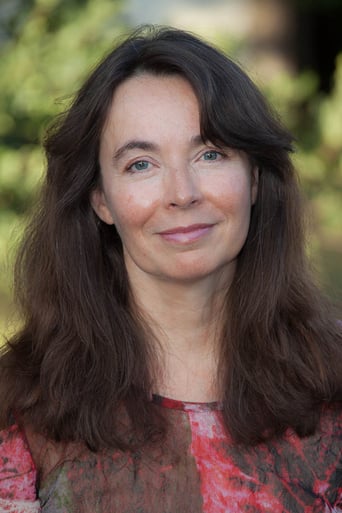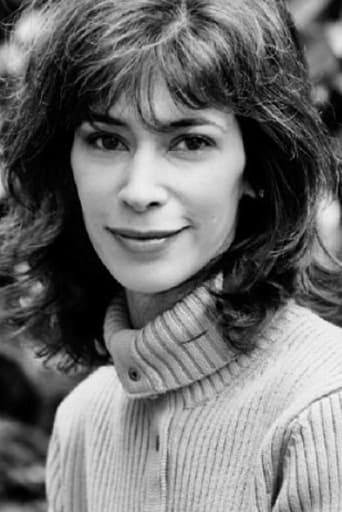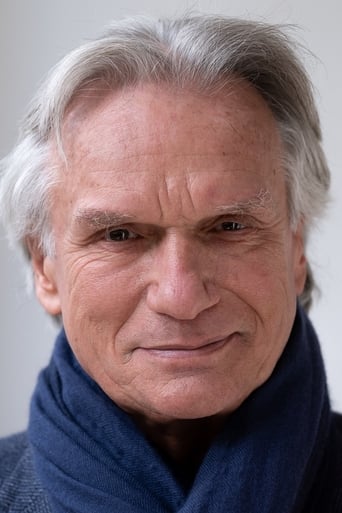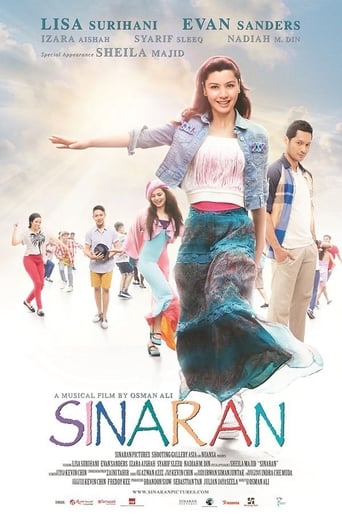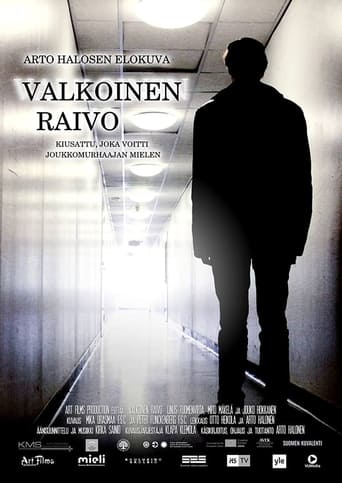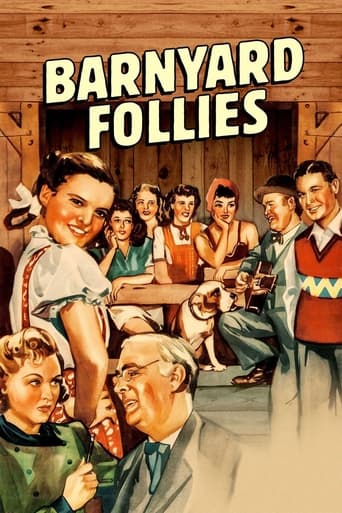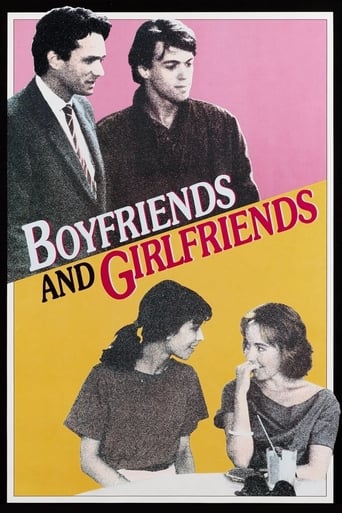
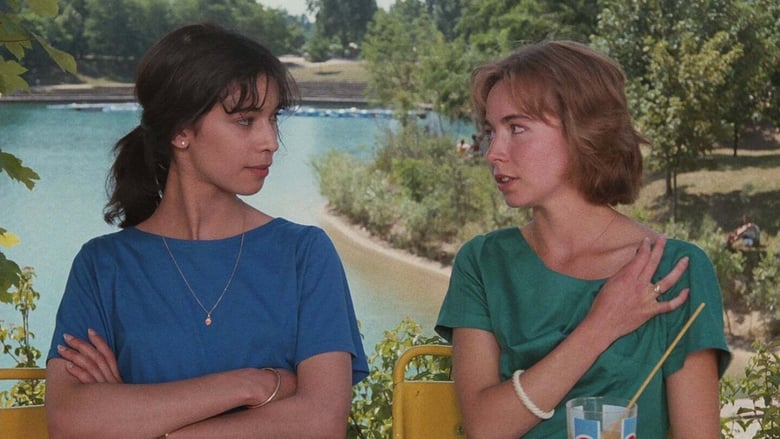
Boyfriends and Girlfriends (1987)
Middle-class Parisian suburbs: Blanche and Léa, office worker and student, meet and become friends. Léa is going out with Fabien, but is thinking of leaving him. Blanche falls for Léa's handsome and witty friend Alexandre, but is tongue-tied whenever she meets him. Léa goes on holiday and Blanche, still smitten with the dashing Alexandre, begins to get to get know Fabien.
Watch Trailer
Cast


Similar titles
Reviews
I love this film for many reasons for one it takes place in this weird sort of shopping mall town outside of Paris that is very post modern surreal, and they do this funny standing up boating sport that is so ludicrous. I also really love the line, which I paraphrase, "Oh Alexandre is the kind of guy anyone would fall in love with" Blanche, presumably can do better: to love someone it takes a more extraordinary person to love. There is not quite as much pompous holding forth in this film that one has to suffer through with most Rohmer films set in contemporary times. Although, as usual, most of the people involved are exquisitely hyporcritical, here it's fun, the comedy is a little more blatant. I notice from reading reviews on IMDb that a lot of people who adore Rohmer, don't, as far as I'm concerned, half understand what he's getting at. I'm sure I went on and on about this in a review of Claire's Knee. If I didn't, why didn't I? Of course Boyfriends and Girlfriends became the model for an homage by Woody Allen, one of his better movies, too, "Hubands and Wives".
Not the best film of 1987; Au revoir les enfants was better, but one certainly worth your investment of time.Writer/director Eric Rohmer is not giving us the typical French vistas of outdoor cafés and artists, but is showing the lives of materialistic and shallow French yuppies in the French suburbs outside Paris. The Eiffel Tower is only seen in the remote distance.They focus on looks alone in choosing boyfriends.Blanche (Emmanuelle Chaulet - Chocolat) and Lea (Sophie Renoir) are friends. Not BFF, but just two twenty-somethings that hang and discuss men.Lea has Fabien (Eric Viellard), and Blanche is enchanted with Alexandre (François-Eric Gendron).Blanche gets herself in a situation where she is involved with Lea's boyfriend, while Lea is off sampling others. Although they pretend to be friends, the constant flirting takes it's toll and they end up in bed. But she still won't commit out of fear of hurting her friend.So, what does she do when Lea announces she has broken up with Fabien for good? She realizes that Alexandre is an unattainable dream and goes off to find Fabien. Meanwhile Alexandre and Lea hit it off.The laughs are plenty as the two friends try to get their love lives together without hurting the other.Nothing deep; like watching an episode of Friends, but cute and enjoyable with Chaulet and Renoir providing excellent performances.
A young woman, Blanche (Emmanuelle Chaulet), is working in the City Hall of the New Town of Cergy Pontoise, in the north west of Paris, on the banks of the river Oise. Alone, recently arrived in the Parisian Region, she befriended another young woman, a computer science student finishing its school, Lea (Sophie Renoir) with which she met her boyfriend Fabien (Eric Viellard), and an acquaintance of the couple, Alexandre (François-Eric Gendron). The French title (l'ami de mon amie, the friend of her friend) is more explicit than the American or English one. (Boyfriends and Girlfriends): A reference to the saying 'the enemy of my enemy is my friend' but distorted to 'the friend of my friend is my friend'. This title, an example of the irony of Eric Rohmer, the boyfriend of my friend could become my (boy)friendThis film belongs to the cycle Comedies and Proverbs, the former term being as important as the latter one in order to understand the meaning of the film. This cycle, filmed in the eighties followed the precedent older cycle, six Moral Tales. Where as the latter concentrated on middle aged married man tempted by another woman but who finally, in relief, returned to his wife, Rohmer in the series of Comedies and Proverbs, turns his attention towards younger female characters. But because it is comedy, the tone is also much lighter and ironic. Here he examines the sexual freedom, (which in fact he disapproves but never condemns overtly in his films), its consequences and how the younger generation is trying to live with a new set of rules.One of these rules, never sleeps with the friend of her or his friend, as often, in earlier time with the traditional moral, is finally broken. But there is more than a tale of love and seduction. It is a study of characters and how love creates a web of relationship among this small group of young urban professionals. As the relationships between them evolve the spectator finally feels some sympathy for the protagonists, at first not very likable. Especially Blanche who is the center of the entire plot, if one can tell of real plot in Rohmer film. Alone self-pitying, infatuated with the irritating, pretentious, serial seducer Alexandre, she blossoms when stricken by real love. She is opposed to her friend yet rival, Lea, physically as well mentally. With dark hair and tall, Lea is freer sexually than the small light-haired Blanche awaiting the great love for two years. The quest of Blanche is the perfect true love, not just an adventure. Ironically, at first she blindly falls in love with the great local seducer Alexandre.With discreet symbolism, Rohmer gives clues about the different players. Blanche (white in french), around whom the whole film revolves demands only a pure love. As Delphine in Summer (Le Rayon Vert), the precedent film of the same cycle, the very absence of love, this void, fills here with anguish. Its flat at Cergy Saint Christophe is decorated in minimalist white fashion, thus emphasizing the loneliness of its life. Blanche and Léa sport alternatively the same colors, green and blue, this swap of colors underlining the possible swap of boyfriends.Rohmer, because of its interest in urbanization (the DVD version contains a documentary he made earlier on industrial aesthetics), sets the action of the film in the New Town of Cergy-Pontoise, described as a quiet, modern, ultra clean Utopia. In fact the spectator sees the town only through Blanche eyes, mainly the pedestrian streets around the center, the banks of the river Oise, the Ricardo Bofil buildings where she lives. But I don't think the Cergy depicted could be viewed, as often said, as a reflection of a superficiality of its young 'yuppies' characters. The purpose of Rohmer was to see the impact of modern architecture on love life. But the answer is in the film: It changes nothing. On the contrary it amplifies or underlines the love relationship between the different characters.'L'ami de mon amie 'is an extremely enjoyable film, full of charm, thanks to the direction of Eric Rohmer and the talent of its young actresses, then in theirs early twenties, like the young women they play. The frozen moment of happiness at the end of the film, just before the credits contributes to its charm. But it is problematic: Have the protagonist found enduring love? Will their love relationship and in the same time, their friendship endure the strain of time? Nothing in fact is sure as irony is always present. But if ironic, Rohmer doesn't despise his characters. On contrary he shows a real tenderness and comprehension towards them, especially Blanche.One of the lighter films of Rohmer, of course very talkative, it is characteristic of all its work, with good mannered young people in search of love while searching themselves. Because of the minimalist direction, it has not aged much since its shot in middle of the eighties. Yet, you can glimpse of the fashion of its period in the clothes of the players if you pay attention on certain details Nowadays, Cergy has aged and worn out a little. Never the modern utopia ironically depicted by Rohmer, it is still a well maintained active town.
Maybe I've OD'd on Rohmer, just having looked at this film, "Full Moon over Paris" and "The Aviator's Wife" (all on DVD)in a single week. The tone of this picture is light for Rohmer, but his heroine is just as indecisive about how to get her man as his others are about which man to choose. A nice comedy.


